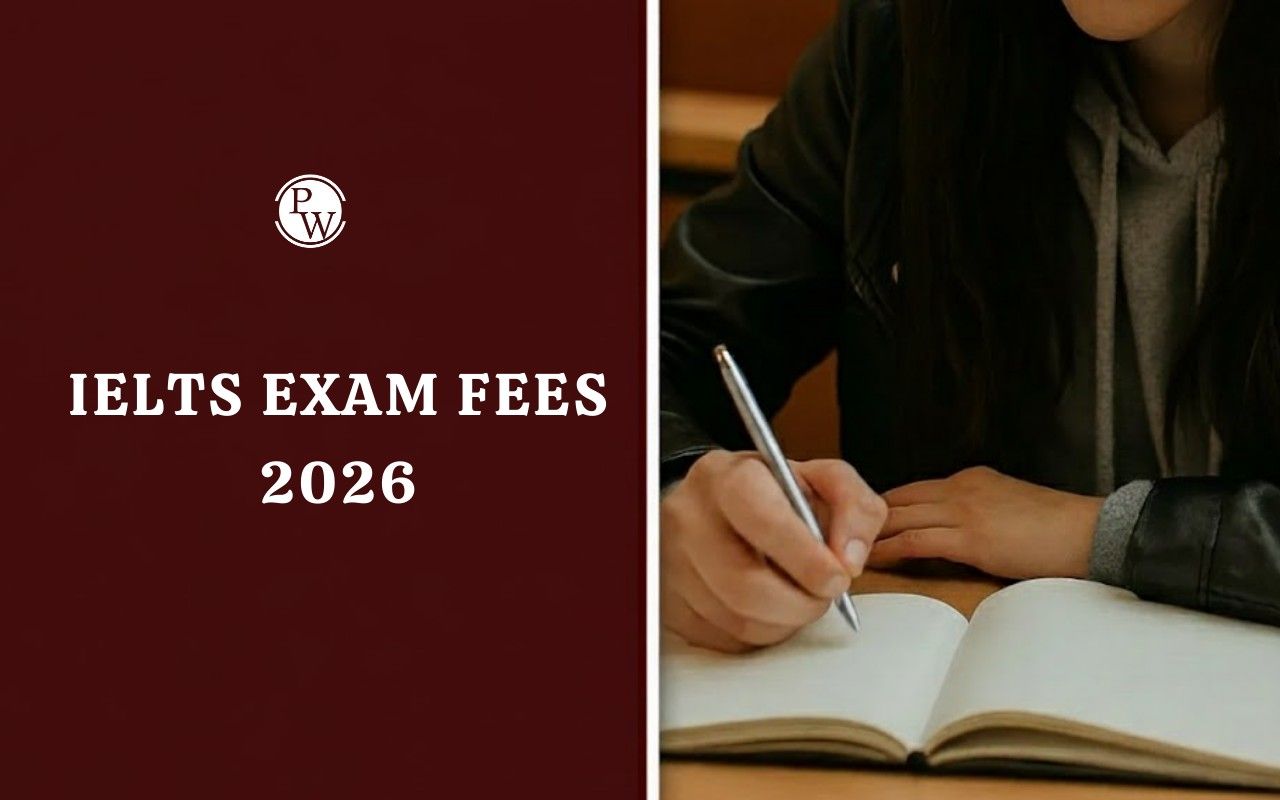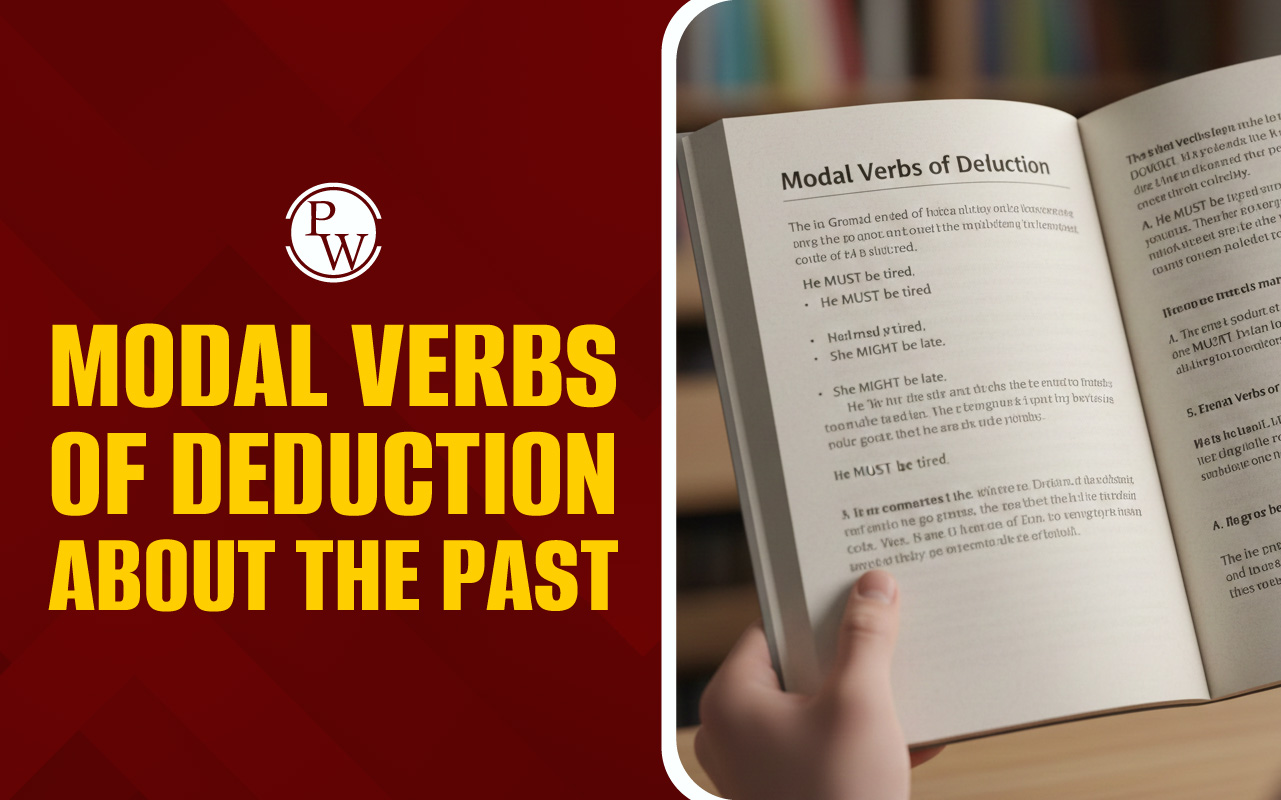
IELTS Crime and Punishment Vocabulary: The International English Language Testing System (IELTS) is designed to assess the English language abilities of people who need to study or work where English is the main language.
IELTS Crime and Punishment Vocabulary is very useful for Writing and Speaking. In these sections, you might have to discuss social topics such as crime and justice, and using the right vocabulary can help you express your ideas clearly and effectively.
This article explains different types of IELTS Crime and Punishment Vocabulary and provides practice exercises to help you learn these words. Practicing them will help you speak and write about these topics with confidence and accuracy in the exam.
Also Check:
What is IELTS Crime and Punishment Vocabulary?
IELTS Crime and Punishment Vocabulary refers to the specific terms related to crime, law enforcement, and the justice system that you may come across in the IELTS exam . This vocabulary is important for discussing and understanding topics about crime and punishment, which often appear in the speaking and writing sections.
Some examples of IELTS Crime and Punishment Vocabulary are:
- Crimes: burglary, theft, robbery, assault, murder, fraud, forgery, vandalism
- Law enforcement: police, detective, prosecutor, judge, lawyer, jury
- Justice system: court, trial, verdict, sentence, prison, parole
- Related terms: victim, suspect, defendant, evidence, crime scene, punishment
By learning these terms, you will be better prepared to express your ideas and opinions on crime-related topics in the IELTS exam.
Types of IELTS Crime Vocabulary
IELTS crime vocabulary is essential for IELTS candidates, particularly those preparing for the Speaking and Writing sections. These sections often include discussions on crime, law enforcement, and justice. Expanding vocabulary in this area allows ideas to be expressed more effectively and confidently. The following are important crime vocabulary, categorized by different crime aspects:
1. Violent Crimes :- Assault : A physical attack on someone.
- Robbery : Theft that involves force or the threat of force.
- Murder : The illegal killing of a person.
- Burglary : Entering a building illegally to commit a crime.
- Theft : Taking someone else’s property without permission.
- Vandalism : Deliberately damaging property.
- Fraud : Lying or deceiving for personal gain.
- Forgery : Making a fake document or signature.
- Drug trafficking : The illegal trade of drugs.
- Money laundering : Hiding the source of illegally obtained money.
- Tax evasion : Not paying taxes owed.
- Terrorism : Using violence or threats, often for political reasons.
-
Law Enforcement
:
- Police officer : Someone responsible for enforcing the law.
- Detective : A police officer who investigates crimes.
- Prosecutor : A lawyer representing the government in criminal cases.
- Defense attorney : A lawyer defending someone accused of a crime.
-
Justice System
:
- Court : The place where legal cases are heard.
- Judge : The person in charge of a court.
- Jury : A group of people deciding if the accused is guilty or not.
- Sentence : The punishment given to someone found guilty of a crime.
- Parole : Allowing a prisoner to be released early under certain conditions.
- Probation : A sentence where the person remains in the community under supervision instead of going to prison.
Other Related Terms
- Victim : Someone who has been harmed by a crime.
- Suspect : A person believed to have committed a crime.
- Defendant : The person being accused of a crime in court.
- Witness : Someone who saw or heard something related to a crime.
- Evidence : Information or material presented in court to prove something.
- Crime rate : The number of crimes committed per population size.
- Recidivism : The tendency for someone who has been in prison to commit crimes again.
To improve fluency, it's helpful to practice using these words in sentences, short essays, or hypothetical scenarios about crime. It’s also helpful to focus on collocations and phrasal verbs related to crime, such as "commit a crime" or "solve a crime."
By expanding vocabulary and understanding crime-related terms, candidates will be better prepared to address crime-related topics in the IELTS exam.
| Essential IELTS Vocabulary Related Pages | |
|---|---|
| IELTS Work Vocabulary | IELTS Map Vocabulary |
| IELTS Family Vocabulary | IELTS Sports Vocabulary |
Types of IELTS Punishment Vocabulary
IELTS, or the International English Language Testing System, is a standardized English test widely recognized for study, work, and immigration purposes. To perform well in the IELTS exam, especially in the speaking and writing sections, having a good vocabulary is important. A common topic in these sections is punishment. Below is a detailed list of IELTS punishment vocabulary types, helping to communicate ideas clearly and accurately.
1. Criminal Punishment:
- Imprisonment: The act of sending a person to prison as punishment for a crime. Example: "The thief received a five-year prison sentence."
- Fines: Monetary penalties given for committing a crime. Example: "The driver was fined for speeding."
- Probation: A sentence that allows a person to stay out of prison while being supervised by the court. Example: "The young offender was placed on probation for two years."
- House Arrest: Confined to one’s home or a specific area as punishment. Example: "The elderly man was under house arrest due to health issues."
- Death Penalty: Execution of a person as punishment for very serious crimes. Example: "In some countries, the death penalty is still used for major offenses."
- Community Service: Requiring a person to perform unpaid work for the community as a punishment. Example: "The vandals were sentenced to community service."
2. Disciplinary Punishment:
- Detention: Keeping a student after school as punishment for misbehavior. Example: "The student was given detention for talking in class."
- Suspension: Temporarily removing a student from school for serious misbehavior. Example: "The student was suspended for bullying."
- Expulsion: Permanently removing a student from school due to repeated offenses. Example: "The student was expelled for bringing drugs to school."
3. Other Forms of Punishment:
- Grounding: Limiting a child's activities as punishment. Example: "The child was grounded for breaking a vase."
- Time-Out: Isolating a child as a form of punishment. Example: "The child was put in time-out for misbehaving."
- Spanking: Hitting a child as a form of punishment. Example: "In some places, spanking is still used as punishment."
4. Additional Vocabulary
- Punitive: Intended to punish.
- Penal: Related to punishment.
- Offender: A person who has committed a crime.
- Convict: A person found guilty of a crime.
- Sentence: The penalty given to someone found guilty of a crime.
- Rehabilitation: Helping someone return to a normal life after prison or addiction.
Understanding these terms will help you discuss punishment more easily in IELTS speaking and writing tasks.
| Free IELTS Practice Tests | |
|---|---|
| Free IELTS Speaking Practice Tests | Free IELTS Reading Practice Tests |
| Free IELTS Listening Practice Tests | Free IELTS Writing Practice Tests |
IELTS Crime and Punishment Vocabulary Practice Exercise
Imagine you are a journalist investigating a recent crime wave in your city. Write a paragraph summarizing the situation, including details about the types of crimes being committed, the frequency of occurrences, and the impact on the community. Use the following vocabulary words: crime wave, spree, burglary, theft, assault, vandalism, fear, anxiety, sense of insecurity, and community morale.
Example: The city has been grappling with a disturbing ________ that has left residents feeling increasingly unsafe. ________ and ________ have become commonplace, with reports of incidents rising by a staggering 20% in the past month alone. More serious crimes, such as ________ and ________, have also seen a concerning uptick. The ________ of criminal activity has instilled a palpable sense of ________ and ________ among the community, eroding their once strong ________. The rising ________ has had a devastating impact on ________, as residents grapple with the fear of becoming victims and the loss of trust in local authorities.
IELTS Crime and Punishment Vocabulary FAQs
What are the verbs related to crime and punishment?
What is the vocabulary of capital punishment?
What is the difference between major crime and minor crime in IELTS?
How many times can IELTS be taken?
How long is IELTS valid for?









